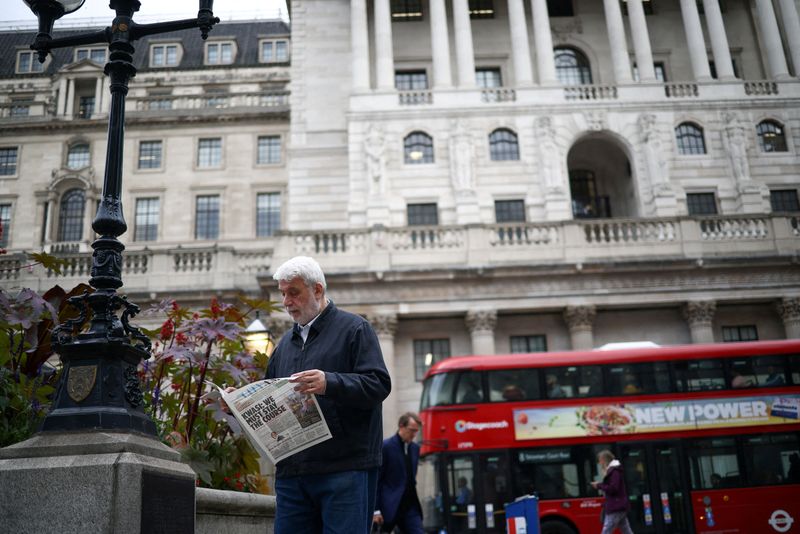By Geoffrey Smith
Investing.com -- The Bank of England raised its key interest rate by another 50 basis points on Thursday, warning that its battle against inflation still isn’t over, but held out the possibility of an end to its policy tightening.
The move, which was as expected by financial markets, takes the Bank rate to 4%, the highest it’s been since the 2008 financial crash.
The Bank's calculations showed that current market expectations of a peak in rates around 4.5% in mid-2023 would push inflation below its 2% target in the medium term. That suggests it doesn't see the need to raise the Bank rate much more, if at all, although it was careful to add that uncertainties around this outlook are high and that "the risks to inflation are skewed significantly to the upside."
"We have done a lot on rates already, and the full effects are still to come through," Governor Andrew Bailey said in opening remarks at his regular press conference.
"One last 25bp hike in Bank Rate in the March meeting still can’t be ruled out. But if, as we expect, signs of slowing price rises and accumulating labor market slack continue to emerge in line with its expectations, then the Monetary Policy Committee looks set to keep Bank Rate at 4% in March, and throughout the rest of this year," said Pantheon Macroeconomics analysts Samuel Tombs in a note to clients.
U.K. markets reacted strongly to the Bank’s guidance, which was the clearest signal yet it is approaching the end of its tightening cycle.
By 08:00 ET (13:00 GMT), the pound was down 0.6% at $1.2298, while the yield on the 10-year Gilt was down 14 basis points at 3.16%, its lowest in nearly two months. The U.K.-focused FTSE 250 stock index rose 2.5% to its highest since last August.
By raising the cost of mortgage and consumer credit, the Bank threatens to sharpen an already clear economic downturn in the U.K. The International Monetary Fund expects the U.K. to be the only G7 economy that will shrink this year, and household spending had already showed signs of slowing at the end of last year.
However, it has been forced to keep raising interest rates because inflation is also running higher than in the U.S. or the rest of Europe and, at 10.5% in December, hasn’t come down as quickly as it has elsewhere.
“Headline CPI inflation has begun to edge back and is likely to fall sharply over the rest of the year as a result of past movements in energy and other goods prices,” the Bank said in a statement accompanying the decisions. "However, the labor market remains tight and domestic price and wage pressures have been stronger than expected, suggesting risks of greater persistence in underlying inflation."
That judgment comes a day after the most widespread strikes in Britain for over a decade, with civil servants, teachers and other public-sector employees all pressing for higher pay.
As a result of the improved inflation outlook - benchmark Natural Gas Futures in particular, have fallen by 50% since the Bank's last Inflation Report in November - the Bank dropped from its statement a promise to act "forcefully" to bring inflation down further if need be.
As in December, the Monetary Policy Committee was not unanimous in its decision, with two members voting for no change in the Bank rate.
